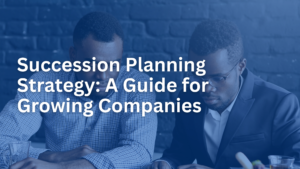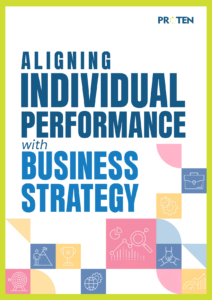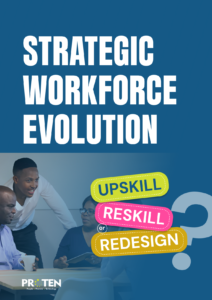A certain Italian fashion line has been an icon since the 20th century. After the founding patriarch started his company in Florence, he built the business by launching his line of quality bags. Although the line was successful, his passing would begin to see a dark turn. After he passed on, his eldest son took charge of the company, expanding the business to major markets outside Italy. This move soon made the brand an international name in fashion, with a former president even referring to the new CEO as the first ambassador of fashion.
But things only went downhill from there.
The new CEO’s son wanted to launch a new fashion line. When his father and uncle rejected the idea, he launched it behind their backs. He was fired and exiled from the family business. He would seek his revenge by exposing his father’s tax issues, which saw the CEO eventually serve a year in federal prison for tax evasion. In time, the son, along with an extended family member, would take over the business. But without a clear plan, the business nearly ran to the ground. Eventually, the extended family member had sole control of the company, and by then the business had a negative net worth running into millions. With more than $40 million in personal debt, the family member was finally forced out of the company by Investcorp.
The problem was not the son’s idea being rejected or his enacting revenge. Although those matters were concerning, the reason the Italian company ran down was because they ignored a very important detail.
No matter how smooth and successful your company is, ignoring this detail can run it down in a matter of weeks. And this very important detail is called succession planning. That’s why in this article, we’ll be exploring what succession planning is all about, and why you should prioritize it. This way we’ll help you ensure the smooth sailing of your business.
What Is Succession Planning?
Let’s say you have an item you love using. Perhaps a perfume that defines your day-to-day scent. No matter how big the quantity is, you can’t expect it to last forever. As a matter of fact, you just noticed that it’s about to finish. If you want to keep smelling the same way, the best thing for you to do is to walk to the store you got it from and get another one. Before the old perfume goes out, or find a better alternative if you want to smell better.
That’s how succession planning works.
It’s essentially a process used to identify, develop, and prepare employees to take on critical roles when current jobholders leave or retire. It’s about ensuring business continuity by having qualified individuals ready to step into key positions.
If the previously mentioned business had created a system that would make the most qualified of them the business’ successor upon the CEO’s imprisonment, perhaps his son would not have taken over, and the line would not have been run down.
And as an employer of labor, you need to act fast if you don’t want the same problem to happen to your company. Take it as having a plan; where there’s a plan A, there’s always, always, a plan B, C, D, E, F, G, H, I, J, K, and L.
So, what do you do in succession planning?
Well, to keep things simple, planning for succession in your company requires five major tasks from you:
- Identifying Critical Roles: Pinpointing the positions vital to your company’s success.
- Talent Assessment: Evaluating your employees’ skills, potential, and career aspirations.
- Development Plans: Creating tailored development programs to prepare employees for future roles.
- Succession Charts: Visualizing potential successors for each critical role.
- Risk Assessment: Identifying potential risks to succession plans and developing contingency plans.
These tasks are important because, this way, you’re able to sort out the most qualified candidate for the role being left. It also reduces the struggle of having to search far and wide in the business landscape for a worthy alternative because you already have one right at home. And by home, we mean the company.
But Why Is Succession Planning Important?
First and foremost, succession planning is important if you want your day-to-day business activities to carry on. You want to make sure that your business operations run smoothly when the personnel in charge leave. It’s also important to remember that your daily operations are a race against time, and more often than not, some tasks are intertwined with others. A good example of a role intertwined with every other is the marketing and communications department in your company. Whichever department you’re in, if you want to push a service to reach your company’s target audience, it goes through the marketing department. Imagine a situation where the head of marketing resigns and work is paused because there is no other qualified person in the department to fill their role.
What do you do then?
In addition to business continuation, another reason you should consider succession planning is because it allows your employees to develop in the role. The 70:20:10 formula in learning and development emphasizes the need for employees to learn new skills on the job. Adding to this, 74% of workers are willing to learn new skills or retrain to remain employable. The willingness of your employees to learn new skills gives you something to work with. Your employees not only see it as a means of skill development but also as a means of career development. This increases their motivation because you have shown them that you are invested in their growth, so they will be invested in you. As said before in a previous article, aura for aura.
Which brings us to the next reason you should consider succession planning.
It improves your employee’s morale. According to employers, 94% of succession plans are believed to improve employee engagement. At the same time, around 62% of employees say that they feel more engaged when they know that the company they work for has a succession plan. Do you see the correlation? When your employees know you’re invested in their growth and won’t just dismiss them, it touches an emotional place in their hearts that triggers their loyalty and makes them even happier to be working for you.
Furthermore, succession planning easily lets you find people who are aligned with your company’s goals. Because they’re right there. In your office. And they’re probably already trained and have developed new skills. And they are already motivated into alignment. Need we say more?
In essence, succession planning is about proactively preparing for the future by nurturing internal talent. It’s not just about replacing people but about building a strong leadership pipeline.
In Conclusion…
Effective succession planning is essential for the long-term success and stability of any organization. By carefully identifying critical roles, assessing employee potential, and implementing comprehensive development plans, you can build a strong leadership pipeline in your pipeline. A rigorous evaluation process that focuses on core competencies, job-specific skills, performance, potential, and cultural fit is crucial in selecting the right individuals for succession. Ultimately, a well-executed succession plan ensures business continuity, fosters talent development, and enhances your overall organizational performance.
For your employees to even be qualified for succession, they require a very particular set of skills. Skills that make them an asset for people like you. And we can help you—help them, develop these skills. Through our tailored learning and development options, they can learn core leadership and technical skills that will not only qualify them but also boost their attitude towards their potential new line of work. So what are you waiting for? Reach out to us today, and let’s help you create the leaders you are looking for.











